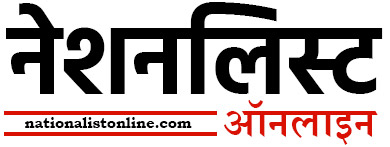RAJESH SINGH
What is so special about the Pakistani artistes that a good section of the Hindi film industry has decided to go against the national mood to defend them? Nobody is against the artistes per se. But is it too much to ask of them to at least condemn the terror strikes on India and condole the death of Indian personnel, both military and civilian, over the months? It’s not as if they have kept themselves aloof from airing their opinion on terrorism. Many of these Pakistani artistes have expressed grief over the terrorist killings in France, the US and even Pakistan. What then prevents them from doing so when the country where they are fattening their wallets, is similarly attacked. Nobody expects them to run down their country, but at least they can proffer their sorrow over the killings.
When the country is united in the aftermath of the Uri incident and on the surgical strike India carried out days later in Pakistan-occupied Kashmir, the Hindi film industry is expected to reflect this option. Instead, for the sake of sounding different or displaying their ‘aman ki asha’ tag or flagging their ‘liberal’ credentials, some of its members think nothing of mocking the mood of the nation. It was shocking to see an artiste of the calibre of Om Puri ridicule the sacrifice of our jawans by demanding to know why they pick up guns and fight. He even sought to turn the incident into a Muslim versus Hindu one. Film-maker Karan Johar too, in his delinquent way, has spoken strongly in favour of the Pakistani artistes.
Then there is the infamous case of Salman Khan questioning the demand that the Pakistani artistes either speak up or quit. He wanted to know if they were terrorists and reminded everyone listening that they were there legally in India, with visa and work permits.
Salman Khan, like his co-thinkers in the film industry, deflect from the real issue. The issue is not whether these artistes are working with a valid visa or not. The issue is whether it behoves them to remain selectively silent on terrorist attacks. Surely, in the given environment, this is not the done thing. As one member of the film fraternity aptly put it, remaining silent is akin to endorsing the attacks. Another said that it would have been appropriate if the Pakistani actors had spoken up.

In any case, it is understood that most Pakistani artistes have packed up and left India for now. This is just as well; they are unwelcome for the moment. But they have left behind a bitter taste in the mouth. This is even more disgraceful because India has for years given them the platform they never got in their own country to showcase their talent. The Fawad Khans, the Ali Jafars and the Atif Aslams would have been nobodies but for India. The likes of Ghulam Ali became international celebrities because of the love and affection they received from Indian audiences here and abroad.
Those who back them fail to question the discriminatory treatment Pakistan has meted out to Indian artistes. On how many occasions has the Pakistani establishment welcomed Indian artistes? Such instances can be counted on the finger-tips. Haven’t some films of Indian artistes including Salman Khan been banned in Pakistan? But since we don’t believe in a tit-for-tat policy, we continue to welcome Pakistani artistes here and pamper them like they are a gift from the gods to India. This brings us back to the question: What is so special about them?
Neither of them is a Dilip Kumar or a Lata Mangeshkar or a Mohammad Rafi. Most of them are mediocre performers at best. The Hindi film industry has enough talent to do without the Pakistanis. It does not gain anything from them; they do from the industry. And yet some of our artistes are willing to stake the national reputation to defend them.
It is being argued that banning Pakistani artistes — as a film-makers’ organisation has done — will not resolve the problem of terrorism. It must be placed on record that the initial demand was not for banning them; it was for them to speak out against anti-India terror. When there was silence, the clamour to sideline them grew. If artistes are ambassadors of peace and brotherhood, they should play that role with sincerity. And, if Pakistani actors and singers earring their livelihood in India, have a problem in condemning terrorist attacks on India simply because their country is involved, they have no business to work here.
Indian film-makers exploit the sacrifices of our jawans by making films on conflicts and earning money. Nobody disputes their right to creative freedom. But shouldn’t they at least listen to the voices of these very jawans and the family members of those who laid down their lives so that the likes of Karan Johar and Salman Khan thrive? For these brave people, the privilege granted to Pakistani artistes who will not even not condemn terrorism in India, is an insult to the martyrs. It was left to actor Nana Patekar to show our ‘liberal’ artistes the mirror. He said that actors were nothing but insignificant bedbugs before our soldiers. Well said!
(The writer is editorial director of nationalistonline.com, English)

